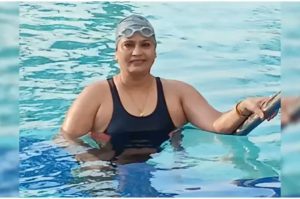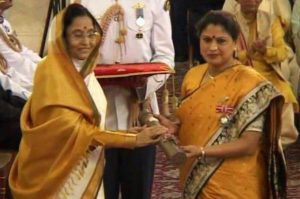West Bengal Police Crack Down on Theft: Te recent recovery of 295 medals belonging to legendary swimmer Bula Choudhury by the West Bengal Police has brought relief to the sports community while also exposing a darker side of rising drug addiction-related crimes in the state. The theft, which shocked not only Bengal but the entire sporting fraternity of India, had highlighted how vulnerable even icons of national pride are to common criminals seeking quick money. While most of the awards have been retrieved, the iconic Padma Shri brooch remains untraced, leaving both investigators and the former athlete’s admirers anxious.

Choudhury, India’s celebrated long-distance swimmer and the first Asian woman to conquer the English Channel twice, saw decades of her achievements vanish overnight when the medals were stolen from her residence in Howrah. For her, the medals represented not only personal milestones but also the dreams of millions of young Indian athletes. The recovery operation has brought temporary respite, but the missing Padma Shri pin continues to remind many of the fragile respect society sometimes accords its heroes. Know more about the Padma Awards here.
The Theft That Shocked Bengal
On a quiet evening earlier this month, Bula Choudhury returned home to discover that a significant portion of her treasured medal collection had disappeared. The news spread like wildfire across Bengal, leaving sports enthusiasts, fellow athletes, and political leaders expressing disbelief. The burglar, identified later as a drug addict, allegedly broke into her home to steal the medals and sell them off for quick cash. What made the case even more painful was that the theft was not motivated by organized crime syndicates or high-value art thefts, but by the desperate acts of one individual trying to fund his addiction. The medals, stored carefully for decades, included recognition from national championships, international events, and felicitation ceremonies.


Each medal represented years of training, sacrifice, and relentless dedication. For Choudhury, who once ruled Asian waters with her resilience, the loss was equivalent to watching her life’s story erased. Public outrage mounted, not only over the crime but also over the lack of adequate security for national icons. The incident also opened up conversations about how vulnerable cultural and sporting memorabilia are in India, where historic achievements often remain poorly protected compared to other countries.
How Police Cracked the Case
The breakthrough came after a specialized team from West Bengal Police traced the suspect through a series of local intelligence leads. The accused, known for petty thefts in the locality, had long been on the police radar for drug-related activities. Investigators quickly pieced together his movements on the day of the theft and launched a targeted manhunt. Within a few days, officers recovered 295 medals from various locations where the accused had attempted to stash or sell them. The recovery operation was delicate since medals had already changed hands in local scrap and pawn markets. Officers had to convince shopkeepers and middlemen to surrender the items once they realized they were linked to a national sporting hero.


However, despite the massive recovery, the most precious item — the Padma Shri brooch awarded by the Government of India — is still missing. The brooch, unlike standard medals, carries symbolic value of national recognition and cannot be replaced by any other award. For investigators, this missing item has become a priority, and they continue to interrogate the accused as well as comb through possible networks where such memorabilia may have been disposed of. Read about West Bengal Police initiatives here.
The Emotional Impact on Bula Choudhury
For Bula Choudhury, the experience has been deeply traumatic. Speaking to reporters after the partial recovery, she expressed relief that most of her medals had been retrieved but also sorrow that her Padma Shri pin remained untraced. “Every medal carries memories of sacrifices made, of the hours of practice, of the pain endured, and the pride of carrying the nation’s flag,” she said, visibly emotional. The incident forced her to relive the moments of her career when she stood on podiums across the world, bringing honor to India. Losing these medals felt to her like losing fragments of her identity. More importantly, she pointed out how such crimes reflect society’s failure to value its heroes adequately. Choudhury has often advocated for better recognition and support of athletes, especially once they retire. She noted that while India celebrates victories, it often forgets the athletes once the spotlight fades.
This theft, she suggested, should serve as a wake-up call for the government and sports bodies to create safer systems for preserving national sports heritage. Her words resonated with many, sparking debates on whether India does enough to honor and safeguard the legacies of its sporting champions.
Drug Addiction and the Rise of Petty Crimes
The suspect’s motive — to fund his drug addiction — has thrown fresh light on the growing crisis of substance abuse in Bengal and other parts of India. Law enforcement agencies have increasingly reported a correlation between rising drug abuse and petty crimes such as theft, chain-snatching, and burglary. The case involving Choudhury’s medals has thus become a symbol of a larger social issue. Experts argue that India’s war against drug addiction requires not just law enforcement but also community rehabilitation, awareness campaigns, and medical intervention.
West Bengal, particularly urban belts like Kolkata and Howrah, has seen a worrying increase in cases of heroin and synthetic drug usage among youth. Addiction drives individuals into desperation, often leading them to target homes, institutions, and even religious places for valuables. While the state police have been running awareness campaigns, this incident demonstrates that much more needs to be done. Policy experts believe that if India cannot address the root cause of addiction, such crimes will continue, undermining the safety of communities and the dignity of icons like Bula Choudhury. Further reading on India’s fight against drug abuse.
West Bengal Police Crack Down on Theft: Public Reaction and Outrage
As the story of the theft and recovery unfolded, public reactions poured in from across the country. Sports lovers, fans, and ordinary citizens took to social media to express their anger and disappointment. Many questioned how such a thing could happen to a celebrated athlete who once brought India immense pride. Political leaders across party lines also condemned the theft, calling it a shameful act and demanding better protection for national treasures.
In Kolkata, several student and sports organizations held symbolic rallies, carrying placards that read “Respect Our Heroes” and “Save Our Sports Heritage.” Even outside Bengal, athletes from other states sent their solidarity to Choudhury, recalling how she had inspired them during their early years. This collective outrage, while directed at the crime, also pushed forward broader questions about society’s treatment of former athletes and their achievements. The narrative became not just about one theft but about a nation’s responsibility to remember and safeguard its history.
The Missing Padma Shri: Why It Matters
Although the police recovered almost all the stolen medals, the missing Padma Shri brooch has become the emotional centerpiece of the case. The Padma Awards are among India’s highest civilian honors, and losing such a symbol is deeply distressing for both the awardee and the nation. Unlike competition medals, which might be replaced or reissued, the Padma Shri brooch is unique and irreplaceable. For Bula Choudhury, it marked the country’s acknowledgment of her contribution to sports and society.
Its absence continues to overshadow the recovery operation and fuels public concern. Experts in heritage conservation have suggested that the government step in to provide special recognition or even a duplicate in extraordinary cases such as this, though the symbolic value of the original can never truly be replicated. Until the missing brooch is found, the case will remain incomplete, and the nation’s celebration of the police’s success will remain tempered by this gap.
Conclusion: A Case Beyond Theft
The recovery of Bula Choudhury’s medals is more than just a criminal case solved by the police. It is a story that blends issues of national pride, vulnerability of sports icons, the crisis of drug addiction, and the gaps in preserving cultural heritage. It shows how a single act of desperation by one individual can spark national outrage, emotional trauma, and a debate on systemic failures.
The medals may now be back with their rightful owner, but the missing Padma Shri brooch stands as a symbol of unfinished justice. For Bengal and for India, this incident is both a relief and a reminder — relief that most of the legacy has been saved, and a reminder that society must do more to honor and protect its heroes. Perhaps the biggest takeaway from this episode is not just about catching thieves, but about building a culture where no athlete, artist, or citizen has to worry about their life’s work being discarded or stolen for petty gains. Learn more about India’s sports heritage here.
Also read: Home | Channel 6 Network – Latest News, Breaking Updates: Politics, Business, Tech & More

